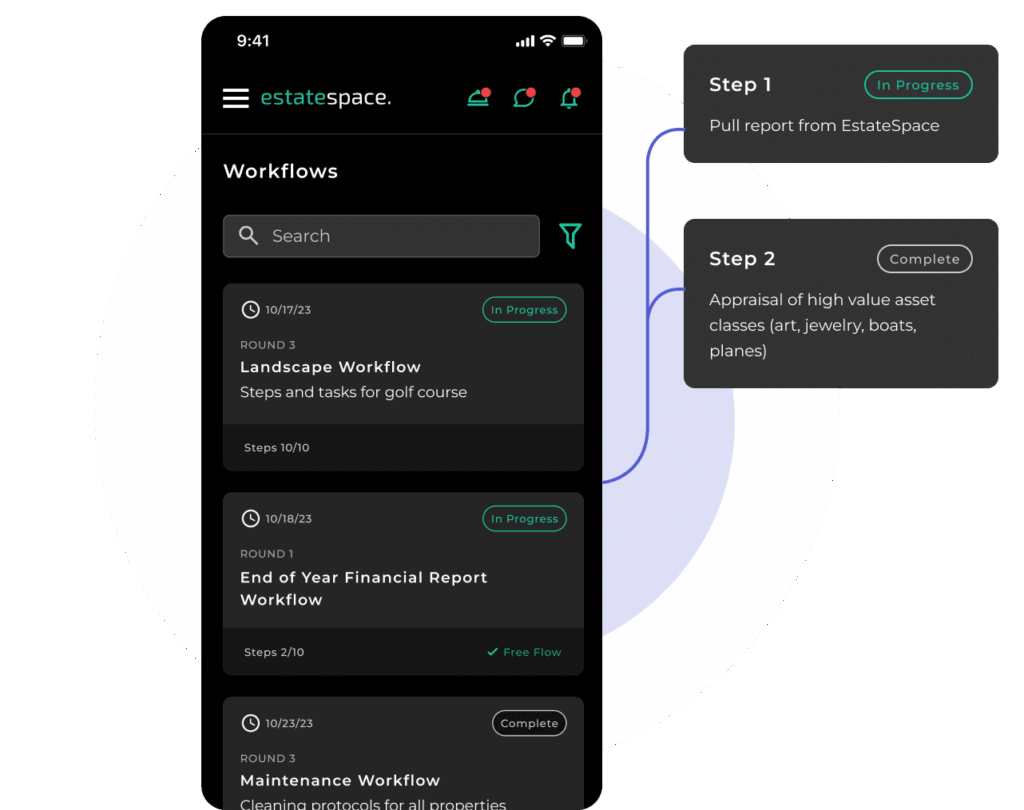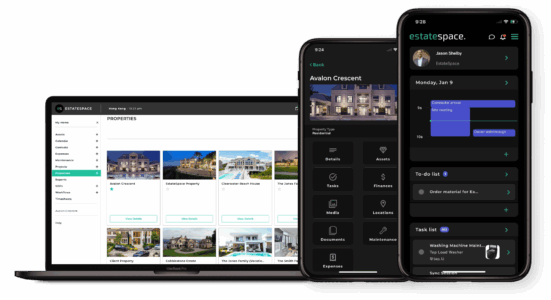Effective task management lies at the heart of successful estate and asset operations. Whether you’re coordinating maintenance across multiple properties, scheduling inspections, or balancing vendor relationships and endless documentation—strategic task management becomes more than just planning. Furthermore, it’s about keeping safe what matters most to the families and assets you protect. However, the weight of this responsibility often goes unseen, yet carries profound emotional significance that traditional task management systems fail to address.
The Unique Landscape of Estate Operations
Managing estates and high-value assets isn’t like running a typical business. Moreover, each task carries deeper implications—affecting legacy, security, and family peace of mind in ways that generic project management tools simply can’t comprehend.
Research indicates that knowledge workers spend 41% of their time on discretionary activities that could be handled more efficiently. Consequently, for estate managers, this translates to countless hours lost switching between systems, tracking down information, and coordinating across disconnected platforms. According to industry analysis from Accruent, property managers face several common challenges, whether they are responsible for a single office block or multiple sites 9 Challenges Facing Real Estate Managers Today | Accruent, highlighting the universal nature of these operational struggles.
What Sets Estate Operations Apart:
High-Stakes Responsibility: Every uncompleted task potentially affects family comfort, asset value, or operational security. Therefore, a delayed security system update isn’t just maintenance—it’s a vulnerability in someone’s sanctuary.
Multi-Layered Collaboration: From family offices and estate attorneys to property caretakers and service providers, managing diverse stakeholders requires exceptional coordination skills.
Context-Rich Operations: Deadlines aren’t just dates—they’re trust markers, potential liabilities, and emotional touchpoints that require deep understanding of family dynamics and property needs.
The Daily Struggle: When Task Management Systems Work Against You
Consider Maria, overseeing maintenance for three luxury residences. Additionally, her morning ritual involves checking seven different systems: maintenance spreadsheets, vendor databases, family calendars, staff schedules, expense tracking, security updates, and emergency protocols.
By 10 AM, she’s already behind schedule, stressed about potential oversights, and wondering if there’s a better way. Sound familiar? Unfortunately, this fragmented approach doesn’t just create inefficiency—it erodes the confidence that asset managers need to deliver exceptional service.
Common Pain Points Estate Managers Face:
- Information Silos: Critical details trapped in individual spreadsheets, email chains, and personal notes
- Communication Gaps: Family members, staff, and vendors operating with incomplete or outdated information
- Reactive Management: Constantly putting out fires instead of preventing them through proactive planning
- Reporting Nightmares: Hours spent manually compiling status updates and progress reports
- Trust Erosion: Missed deadlines and overlooked details gradually undermining family confidence
Why Traditional Task Management Tools Fall Short
Generic task management platforms like Trello or Asana excel in many business contexts but struggle with estate management’s unique demands:
- Trello: Offers visual simplicity but lacks estate-specific structure and context-aware organization
- Asana: Provides strong project workflows but misses the property-specific details and cross-role clarity essential for estate operations
- Spreadsheets: Create information silos and require constant manual updates, leading to miscommunication and missed deadlines
The fundamental issue isn’t the tools themselves—rather, it’s that estate management operates on human rhythms, not software logic.

A Purpose-Built Solution: AI-Powered Operations
EstateSpace represents a fundamental shift toward human-centered task management, powered by artificial intelligence that understands estate operations’ unique rhythms and requirements.
Core Features That Address Real Pain Points:
- Context-Aware Task Creation: Every task automatically links to specific properties, assets, and responsible parties, eliminating the confusion of scattered information
- Intelligent Collaboration: Invite trusted team members—family, attorneys, caretakers—with role-appropriate access that maintains transparency without overwhelming participants
- Rich Documentation Integration: Attach photos, warranties, contracts, and vendor notes directly to tasks, creating living records accessible to everyone who needs them
- Lifestyle Management Integration: Coordinate personal services, travel arrangements, and special events alongside property maintenance for truly holistic estate operations
Comprehensive Estate Operations Support:
Concierge Services Coordination: Seamlessly manage personal requests, special events, and family preferences within the same system handling property maintenance.
Advanced Reporting: Generate meaningful insights for family members and project managers without hours of manual data compilation.
Vendor Management Excellence: Track performance histories, manage contracts, and optimize service delivery across all properties and service categories.
Staff Coordination: Align household staff schedules with family needs, property requirements, and seasonal demands.
The AI Advantage: Smart Task Management That Learns
EstateSpace’s AI capabilities don’t replace human judgment—instead, they amplify it by addressing the complexity that makes estate management so challenging:
- Predictive Maintenance: AI analyzes patterns to suggest optimal service timing before issues impact family comfort
- Resource Optimization: Intelligent scheduling coordinates vendor availability with family schedules and property needs
- Risk Anticipation: Early warning systems identify potential challenges before they become emergencies
- Learning Adaptation: The system continuously improves based on your specific operational patterns and preferences
A Real Transformation Story
When Laura started managing her parents’ three properties, she felt overwhelmed by sticky notes, phone tag with vendors, and scattered documentation. Additionally, the emotional weight of potentially disappointing her family while managing complex logistics kept her awake at night.
After implementing purpose-built task management, Laura’s daily experience shifted dramatically. Now, she schedules HVAC maintenance with attached service histories, coordinates landscaping with upcoming family visits, and keeps everyone informed through automated updates—all while maintaining detailed records for future reference.
The transformation went beyond efficiency. Subsequently, Laura now approaches her responsibilities with confidence rather than anxiety, and her parents express genuine appreciation for the transparency and proactive care.
Understanding the Broader Context
As detailed in our comprehensive estate management operations guide, effective task management serves as the foundation for exceptional estate stewardship. When your operational backbone is solid, every other aspect of estate management becomes more manageable and effective.
Furthermore, EstateSpace’s product overview demonstrates how integrated solutions support not just daily operations, but long-term estate preservation and family satisfaction.
Building Trust Through Thoughtful Technology
The most sophisticated systems mean nothing without understanding the human dynamics at play. Estate management is ultimately about creating environments where families thrive, assets maintain value, and legacies are preserved.
Purpose-built solutions don’t just organize your work—instead, they transform your relationship with responsibility. Rather than feeling overwhelmed by endless details, you become the confident professional families rely on to keep their world running smoothly.
Your Path Forward with Better Task Management
Transforming your operational approach doesn’t require overhauling your entire operation. Instead, start with one property or one area of responsibility, and experience how context-rich, AI-powered management can shift your daily experience from reactive chaos to proactive confidence.
Remember: managing estates isn’t just logistics—rather, it’s about honoring memories, reducing family burden, and preserving legacies through thoughtful, human-centered operations.
Ready to experience how purpose-built solutions feel less like work and more like care? Schedule a Private Demo and discover how EstateSpace transforms complex responsibilities into organized confidence.
Because exceptional estate management isn’t about checking more boxes—it’s about nurturing peace of mind.



